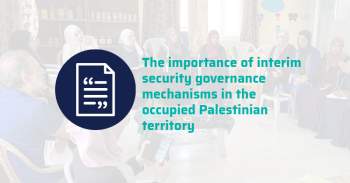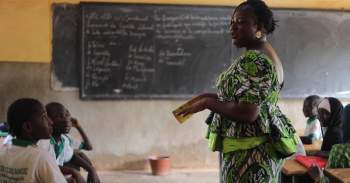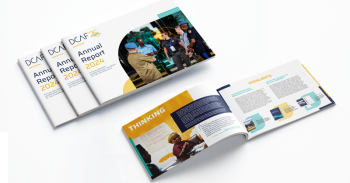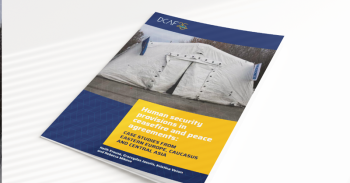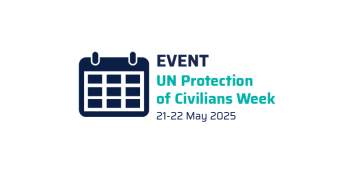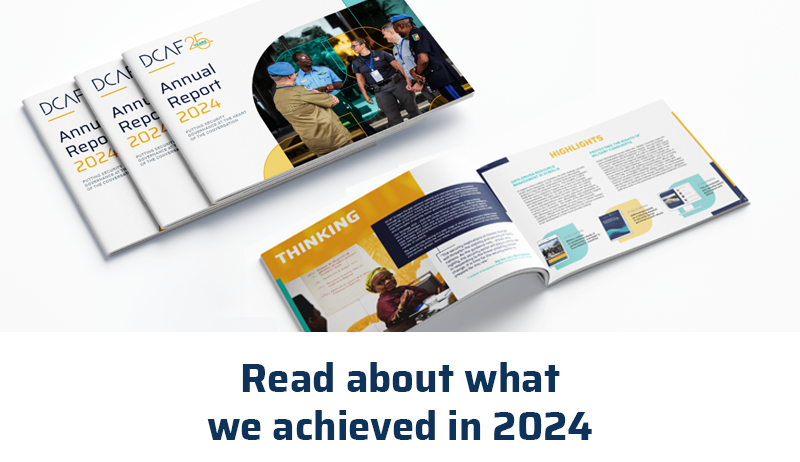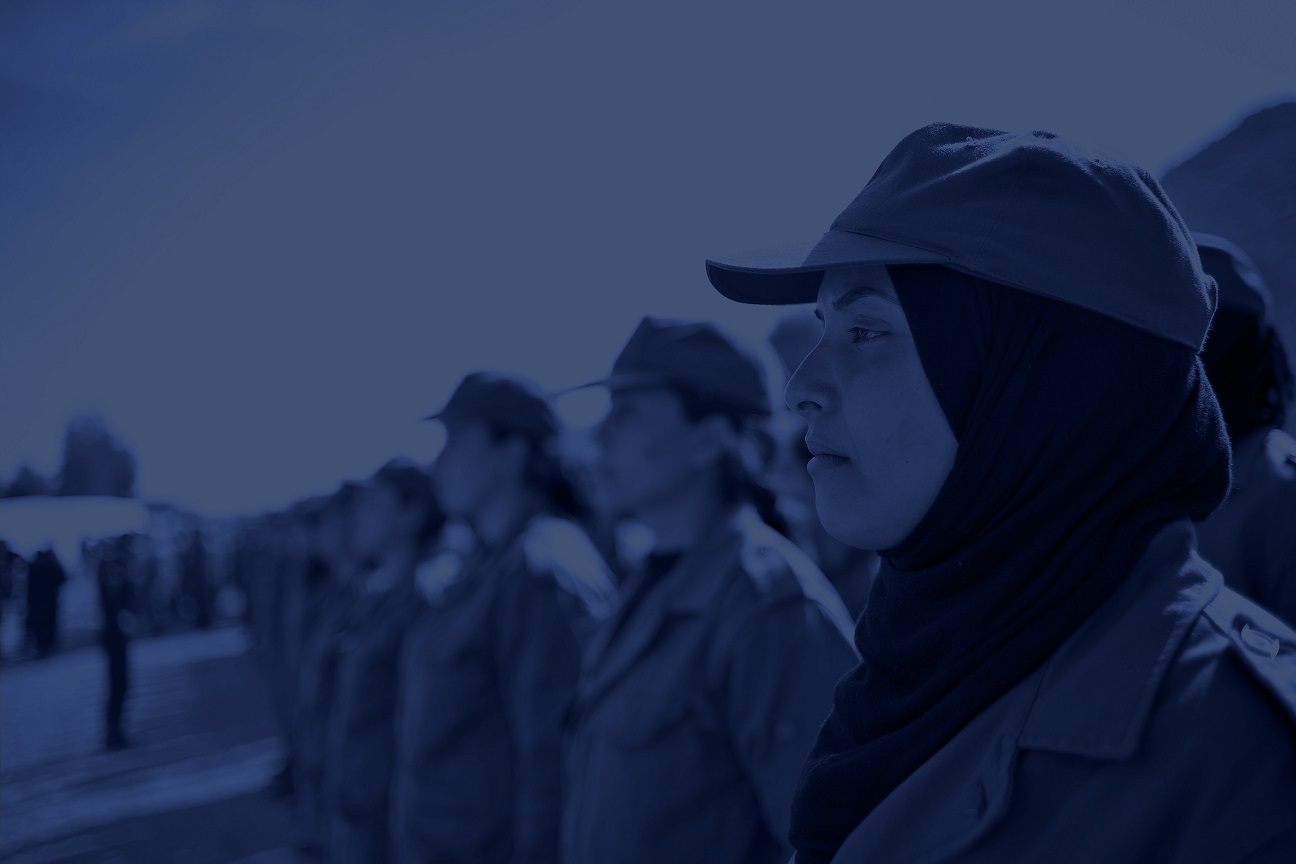
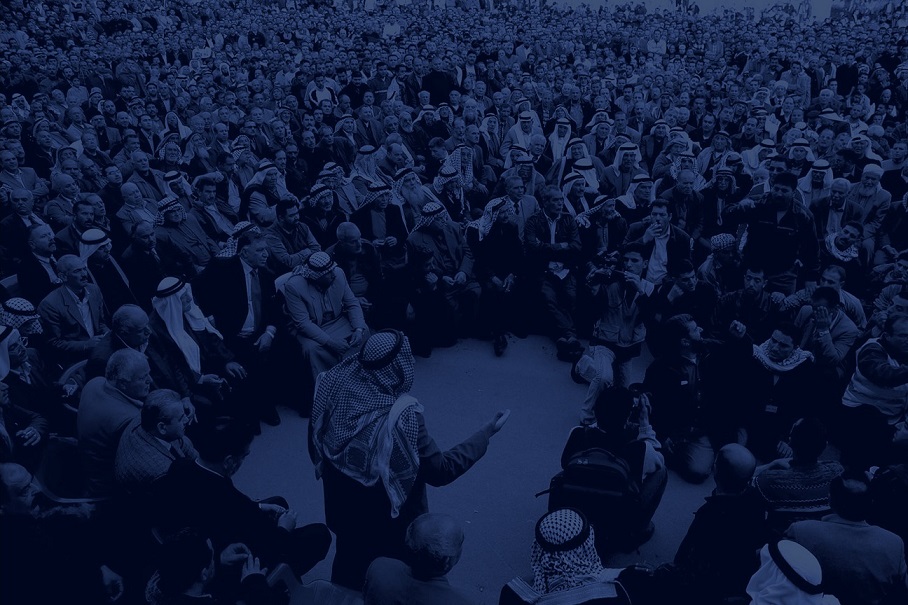
in policy and practice
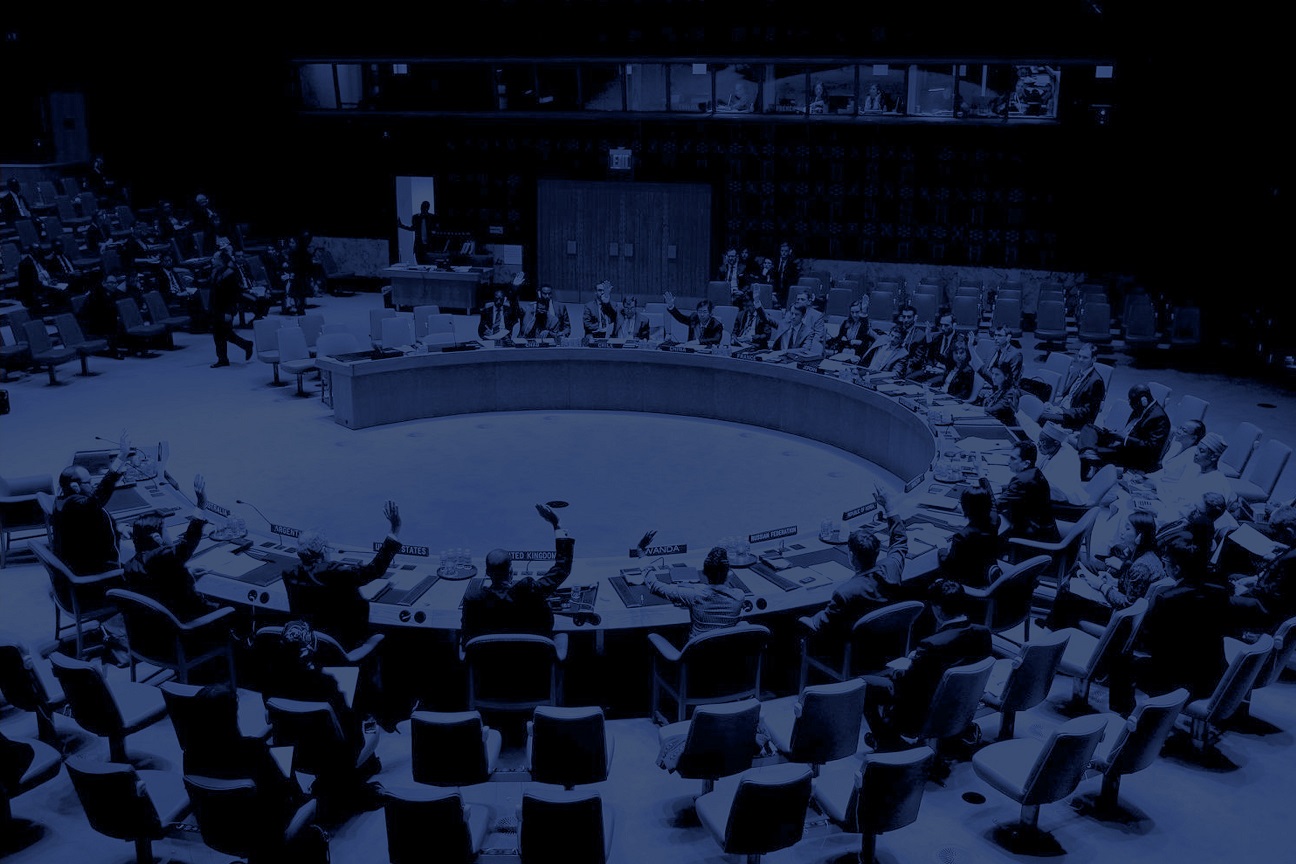
of the security sector
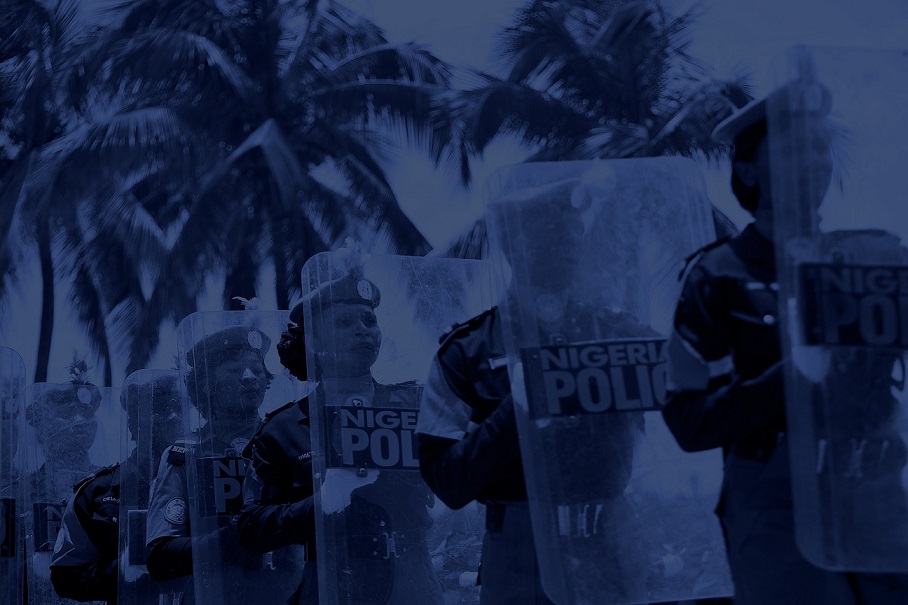
for better security sector reform
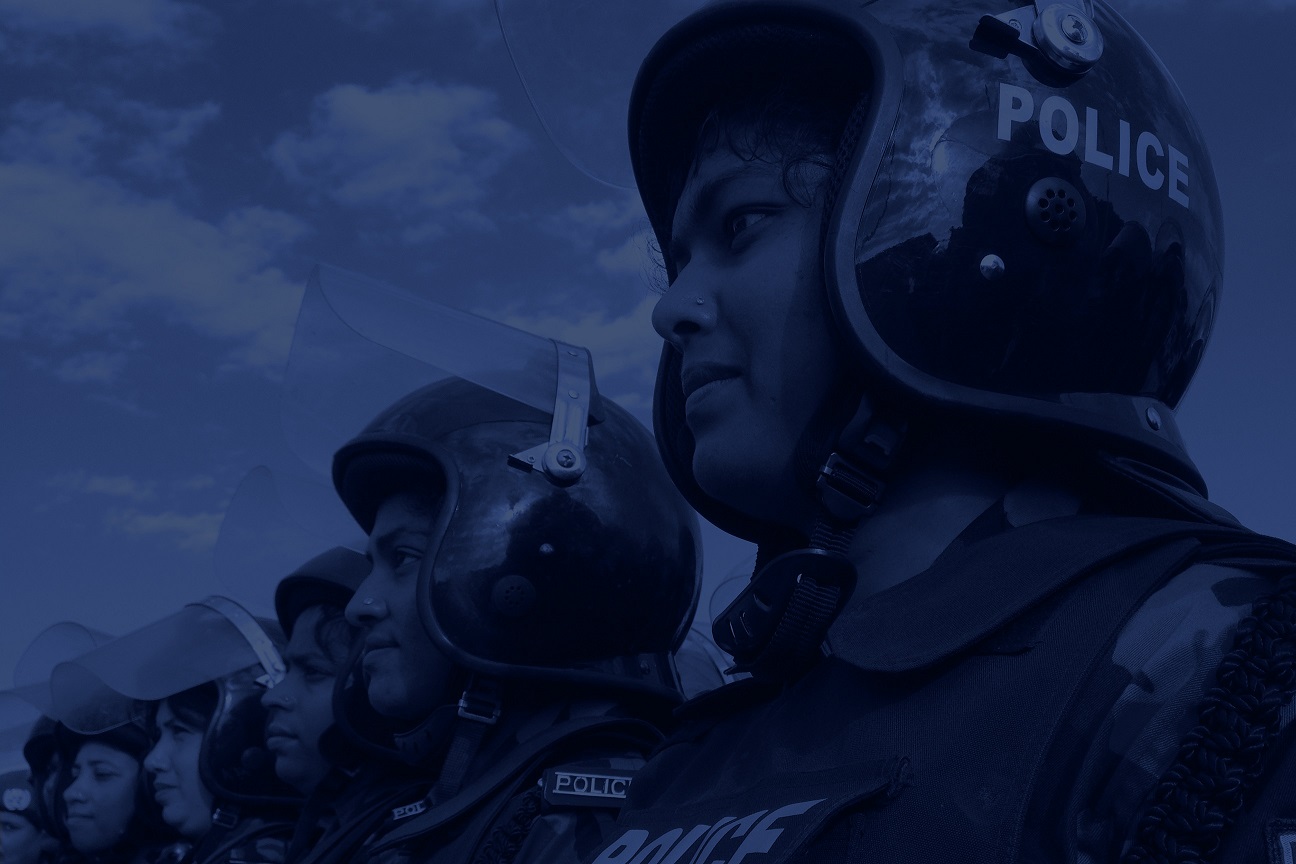
for inclusive security
News
Human security at the heart of NATO seminar in Antalya DCAF took part in the NATO Parliamentary Assembly’s Mediterranean and Middle East Special Group Seminar in Antalya, Türkiye. With 180 participants from NATO and partner regions, discussions focused on governance, human security, and parliamentary oversight. DCAF emphasized the importance of inclusive dialogue, transparency, and legitimacy—drawing on field experience from contexts such as Mali, Niger, and Burkina Faso. 07 Jul 2025
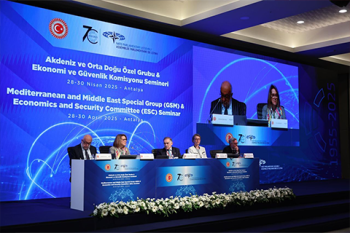
Human security at the heart of NATO seminar in Antalya
DCAF took part in the NATO Parliamentary Assembly’s Mediterranean and Middle East Special Group Seminar in Antalya, Türkiye. With 180 participants from NATO and partner regions, discussions focused on governance, human security, and parliamentary oversight. DCAF emphasized the importance of inclusive dialogue, transparency, and legitimacy—drawing on field experience from contexts such as Mali, Niger, and Burkina Faso.
07 Jul 2025
Boosting border security through standardization A handover ceremony marked the completion of the project on standardization and systematization of technical equipment for the Border Police of Bosnia and Herzegovina. Implemented with support from DCAF, the Swiss Government, and the Ministry of Security of Bosnia and Herzegovina, the project developed internal documents to enhance interoperability, procurement, and planning in areas such as human resources, mobility, and telecommunications. 04 Jul 2025
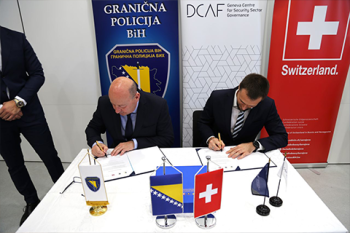
Boosting border security through standardization
A handover ceremony marked the completion of the project on standardization and systematization of technical equipment for the Border Police of Bosnia and Herzegovina. Implemented with support from DCAF, the Swiss Government, and the Ministry of Security of Bosnia and Herzegovina, the project developed internal documents to enhance interoperability, procurement, and planning in areas such as human resources, mobility, and telecommunications.
04 Jul 2025
Partnership for peace workshop in Istanbul DCAF joined the Partnership for peace workshop in Istanbul, focusing on emerging technologies in conflict prevention in the South Caucasus, to present research on digitalization and security sector governance. Participants discussed new tech’s role in peacebuilding and developed recommendations for effective use, inclusive training, rights-based regulations, and transparent decision-making. The workshop highlighted the importance of collaboration among regional stakeholders to ensure sustainable peace. 30 Jun 2025
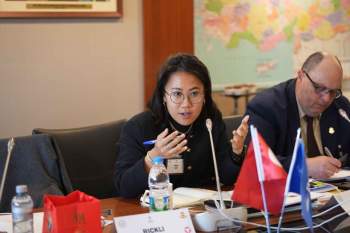
Partnership for peace workshop in Istanbul
DCAF joined the Partnership for peace workshop in Istanbul, focusing on emerging technologies in conflict prevention in the South Caucasus, to present research on digitalization and security sector governance. Participants discussed new tech’s role in peacebuilding and developed recommendations for effective use, inclusive training, rights-based regulations, and transparent decision-making. The workshop highlighted the importance of collaboration among regional stakeholders to ensure sustainable peace.
30 Jun 2025
Strengthening public administration in Montenegro DCAF held the closing meeting of its Human Capacity Building activity in collaboration with the Montenegrin Ministry of Public Administration. During the session, DCAF presented key conclusions and officially handed over the Assessments and Recommendations document to the Ministry’s leadership. These findings led to a tailored three-year roadmap to support the Ministry’s transition from a traditional setup to a more functional and effective structure. 27 Jun 2025
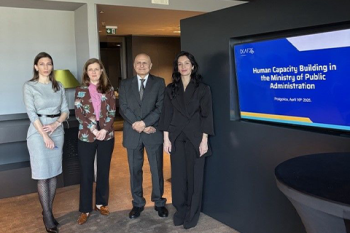
Strengthening public administration in Montenegro
DCAF held the closing meeting of its Human Capacity Building activity in collaboration with the Montenegrin Ministry of Public Administration. During the session, DCAF presented key conclusions and officially handed over the Assessments and Recommendations document to the Ministry’s leadership. These findings led to a tailored three-year roadmap to support the Ministry’s transition from a traditional setup to a more functional and effective structure.
27 Jun 2025
Advancing inclusive security governance in Syria DCAF Director Nathalie Chuard and our team concluded a mission to Damascus as part of our ongoing efforts to promote inclusive engagement on security sector governance and reform in Syria. The visit included discussions with Deputy Foreign Minister Mr. Yasser Al Jundi and a broad spectrum of civil society actors—from human rights groups and feminist organizations to The White Helmets. This engagement reflects DCAF’s commitment to supporting a Syrian security sector that is accountable, inclusive, and responsive to the needs of its people. 23 Jun 2025
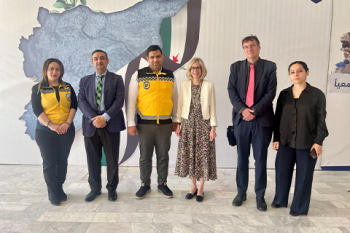
Advancing inclusive security governance in Syria
DCAF Director Nathalie Chuard and our team concluded a mission to Damascus as part of our ongoing efforts to promote inclusive engagement on security sector governance and reform in Syria. The visit included discussions with Deputy Foreign Minister Mr. Yasser Al Jundi and a broad spectrum of civil society actors—from human rights groups and feminist organizations to The White Helmets. This engagement reflects DCAF’s commitment to supporting a Syrian security sector that is accountable, inclusive, and responsive to the needs of its people.
23 Jun 2025
Latest
opinion The importance of interim security governance mechanisms in the occupied Palestinian territory 04 Jul 2025
Multimedia Raising awareness of drug use in schools in Burkina Faso 25 Jun 2025
Publications DCAF Annual Report 2024 19 Jun 2025
Publications Human security provisions in ceasefire and peace agreements: case studies from Eastern Europe, Caucasus and Central Asia 12 Jun 2025
Publications More than a mandate? Making gender training in security institutions matter 28 May 2025
- Publications
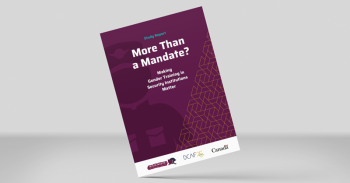
More than a mandate? Making gender training in security institutions matter
28 May 2025
Event UN Protection of Civilians Week 16 May 2025
Publications Use of police force: A framework to ensure good governance over the use of force 09 May 2025
- Publications

Use of police force: A framework to ensure good governance over the use of force
09 May 2025
Publications Violence and hooliganism in sports stadiums in Morocco: A comprehensive approach 08 May 2025
- Publications

Violence and hooliganism in sports stadiums in Morocco: A comprehensive approach
08 May 2025
Event Global conference on cyber capacity building 07 May 2025
Where we work
70+
Countries
